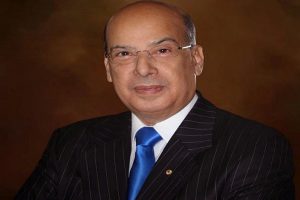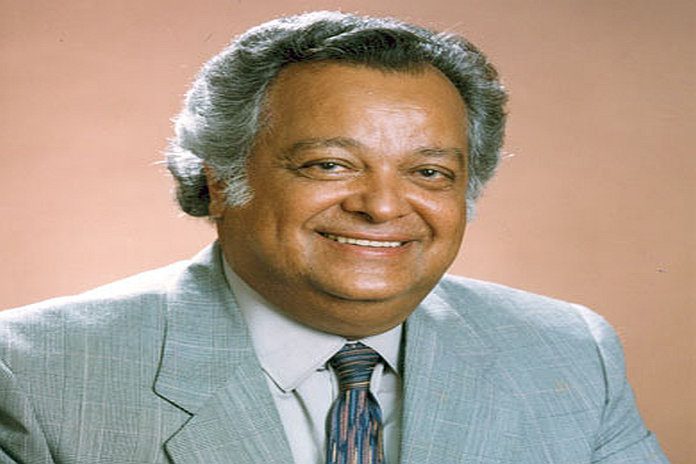By Sir Ronald Sanders
In the 1970s, as newly independent nations in the Caribbean, Africa, and the Pacific sought to shape their economic futures, the world they confronted was still very much dominated by their former colonial powers in Europe, and the global reach of the United States. These nations, emerging from centuries of colonial exploitation, faced immense challenges as they tried to secure a fair place in the international economic order. However, they found champions in leaders like Sir Shridath “Sonny” Ramphal, whose recent passing reminds us of a critical chapter in the fight for economic justice, and P.J. Patterson, a stalwart in that same battle.
Ramphal, a man of immense skill, courage, and vision, along with Patterson, boldly took on the powerful countries of the European Union (EU) in an effort to wrestle economic fairness for developing nations. Their efforts culminated in one of the most significant achievements of that era – the Lome Convention, the first formal agreement between the EU and its former colonies that promised aid, trade, and development. This was no easy task, and the road to Lome required formidable organizing and diplomacy.
Before Ramphal and Patterson could sit at the negotiating table with the EU, they needed a united front, something that had eluded many developing nations up until that point. It was in 1972, on the margins of a meeting of Foreign Ministers of Non-Aligned countries in Guyana, that Sir Shridath conceived a groundbreaking idea – a coalition of developing countries across Africa, the Caribbean, and the Pacific that could confront the economic giant of Europe together. His concept was not only ambitious but revolutionary, recognizing that small states negotiating individually with Europe would always be outmatched, but unified, they could become a formidable force.

The result was the creation of the African, Caribbean, and Pacific (ACP) Group – a diplomatic and economic alliance aimed at securing fair trade deals with Europe. Ramphal became the Group’s spokesman on sugar, while P.J. Patterson took on the role of spokesman on bananas – two vital exports for many of these nations. Supported by a team of sharp-minded technicians like Dr Alister McIntyre, they stood united against the EU, backed by the collective strength of the ACP. The power of this unity was undeniable. For the first time, developing nations, once mere pawns in global economic negotiations, had a seat at the table with the might of a bloc behind them.
But unity, as history so often shows, is as fragile as it could be threatening. While the ACP’s efforts led to the landmark Lome Conventions, and later the Cotonou Agreement, they also unsettled the powerful European nations. The solidarity among developing countries threatened the EU’s ability to dictate terms, and in the years following the Lome Conventions, the cracks began to show. Europe, returning to one of its oldest strategies, sought to divide the ACP. African nations, the largest group within the ACP, were persuaded to break away from joint negotiations. By the time the Economic Partnership Agreements (EPAs) were on the table in the year 2000, Africa had been splintered into three separate negotiating units, weakening the ACP’s collective bargaining power.
This fragmentation was Europe’s victory. The unity that once empowered the ACP had been successfully eroded, and as a result, the EPAs – agreements that were supposed to benefit developing nations – left the ACP countries negotiating alone, each country or sub-region now isolated and outmatched. The “divide and rule” technique, once used to subjugate colonies, had once again found success in a new form of economic imperialism.
The EPAs, which Caribbean countries signed in 2008, were nothing short of a “shotgun arrangement.” Under the guise of partnership, ACP nations found themselves signing agreements that returned them to the conditionalities, and terms dictated by the EU. ACP states gave far more than they got in return, and with no collective voice, they faced the behemoth of the EU alone.
Ramphal’s fight for justice did not end with the ACP. In 1975, he assumed the role of secretary-general of the Commonwealth, a position he would hold for 15 years. When he took the helm, the Commonwealth was still very much a “British” institution, serving primarily the interests of the UK government, including the preservation of white minority rule in Southern Rhodesia (later Zimbabwe) and apartheid South Africa. Ramphal brought with him the same determination that had guided his efforts for developing countries – now expanded to the global stage.
Through his leadership, the Commonwealth Secretariat became an engine for advancing equity and justice for developing states. Ramphal harnessed the power of Expert Groups to produce meticulously researched reports that challenged the policies of global institutions like the IMF, World Bank, and WTO. These reports not only provided developing countries with evidence-based arguments but also positioned Ramphal as an international voice for the poor and underdeveloped.
Ramphal’s influence went beyond economic policy. Defying the British government and its Prime Minister, Margaret Thatcher, Ramphal used his legal and diplomatic acumen to support African leaders in their negotiations for independence of Southern Rhodesia. His insistence on “one man, one vote” became a cornerstone of Southern Rhodesia’s eventual independence as Zimbabwe.
In the fight against apartheid, Ramphal once again marshalled his diplomatic skill to build alliances across the Commonwealth. He forged a coalition between leaders of African frontline states, Julius Nyerere of Tanzania and Kenneth Kaunda of Zambia, with leaders from outside Africa, such as Bob Hawke of Australia, Brian Mulroney of Canada, Rajiv Gandhi of India, and Lynden Pindling of The Bahamas. This alliance helped swing Commonwealth sentiment behind accelerated action to end apartheid in South Africa and to free Nelson Mandela from prison.
At the conclusion of his tenure as Commonwealth Secretary-General, Ramphal’s work was far from over. He turned his attention to his beloved Caribbean, spearheading initiatives aimed at strengthening the region through deeper economic interaction and political cooperation. The central theme of his efforts remained the same – unity. For Ramphal, unity was not only the foundation of the Caribbean’s strength but also the key to its rightful standing in the world. His work continued to be supported by P.J. Patterson and Alister McIntyre, his longtime collaborators and fellow warriors in the struggle for Caribbean advancement.
Now, as Ramphal and McIntyre have passed on, P.J. Patterson stands as the last surviving member of this illustrious trio. The Caribbean owes these giants an incalculable debt, but more than anything else, it owes itself the obligation to remain faithful to the courage, vision, and diligence that Ramphal, Patterson, and McIntyre exemplified. Their quest to ensure that the region stood tall in the international community, asserting its rights and leadership, is a legacy that demands to be upheld.
- The writer is Antigua and Barbuda’s Ambassador to the US and the OAS. He is also the son-in-law of Sir Shridath Ramphal.





